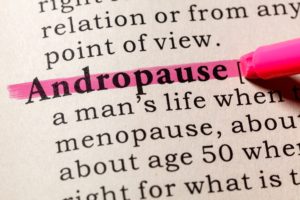
Researchers suggest that obesity, poor sleep, and stress could be contributing factors to these complaints, but the main culprit is low levels of testosterone.
Low testosterone – or low T – can contribute to male menopause or andropause. It is known that there is a gradual decrease in testosterone levels in a man’s life, with a three percent annual decrease occurring after the age of 40. By the age of 60, nearly 20 percent of men go through andropause.
Low testosterone can contribute to weight gain, muscle weakness, sexual dysfunction, low libido, a decrease in bone density, anger, and depression.
Although testosterone levels reduce with aging, other factors can contribute to low T, which means it can affect men in their younger years. Mood, energy levels, nutrition genetics, age, health conditions, and medications can all play a role in testosterone levels.
If you take the time to speak to your doctor regarding your symptoms, they can help you in determining the underlying cause of your low T along with advising on how to improve your levels. Simple solutions to boosting testosterone include sleeping better, exercise, eating a healthy diet, and reducing stress.
If your low T is more serious, then your doctor may recommend testosterone replacement therapy to boost levels.
If you experience any of the above-listed symptoms and fear male menopause, don’t. Instead, talk to your doctor to determine your options so you can start feeling like a man once again.
Also read: Andropause natural treatment: 26 home and herbal remedies for male menopause




